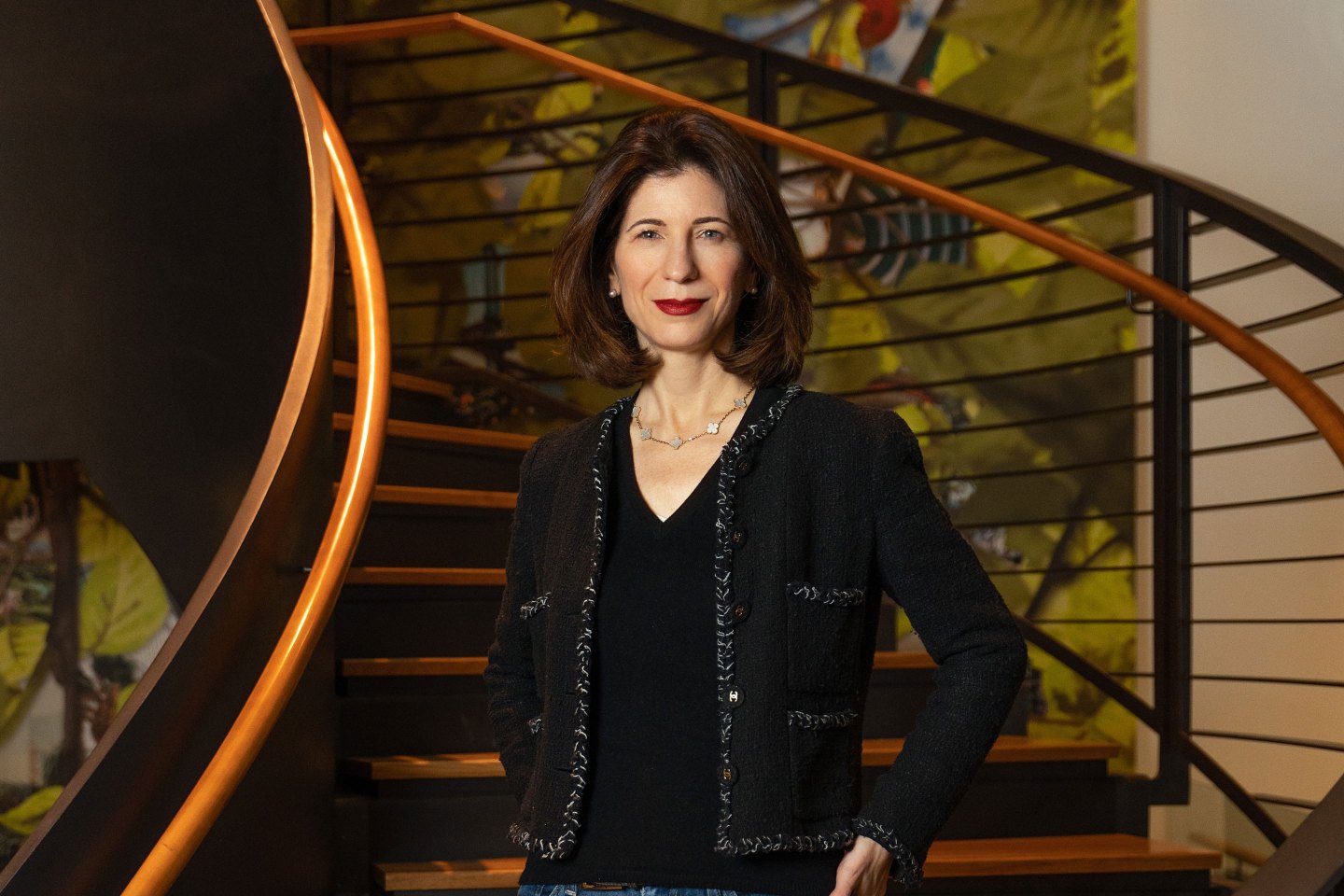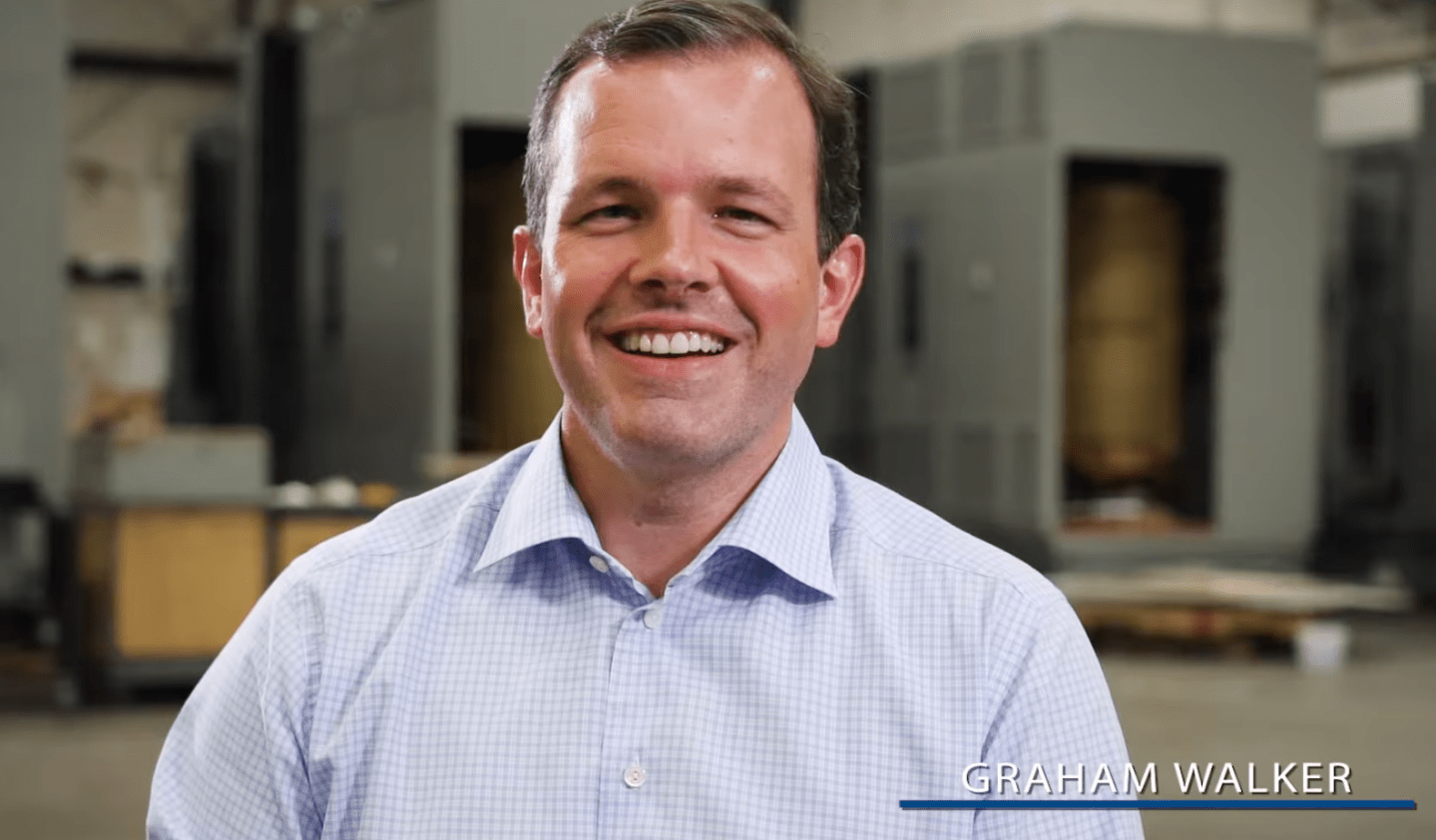- In today’s CEO Daily: Diane Brady talks to the CEOs of Stryker, Sentry Equipment and the U.S. Chamber of Commerce CEO about how they’re handling the 90-day pause in the trade war.
- The big story: Trump may (eventually) get the lower interest rates he wants.
- The markets: Huge yesterday, not so much today.
- Analyst notes from UBS on Trump’s climbdown, Oxford Economics on GDP, Goldman Sachs on China exports, and BNP Paribas on the tariff war.
- Plus: All the news and watercooler chat from Fortune.
Good morning. Stocks are up since the world’s two superpowers declared a temporary detente this week, agreeing to slash tariffs for 90 days. Has investor optimism trickled down (or is that up?) to the C-suite? Here’s a perspective from two leaders in different circumstances. Stryker CEO Kevin Lobo, who recently said tariffs could take $200 million off the medical technology company’s otherwise strong expected earnings this year, told me yesterday that he’s not making big moves in light of the break. The $22.6 billion-a-year company still managed to deliver double-digit growth this past quarter.
“We have looked at certain product categories and said, ‘Do we need to bring so much in right now?’ But these are temporary decisions,” said Lobo. “It’s not like I can just move products and create a new factory.” He added that while he’s “maintaining” the supply chain he has in effect today, “if we are routing product from Europe to America to then send to Latin America, we’re going to try to send it directly from Europe to Latin America,” he added. “Hopefully at the end of this 90-day pause, things will get better.”
On the other end of the scale, there’s Brian Baker, who’s CEO of Sentry Equipment, a $70 million-a-year manufacturer of sampling and process equipment based in Oconomowoc, Wisconsin, who recently lost a $300,000 order from a Chinese customer because of the tariff war. “We rushed the order but they controlled the logistics and couldn’t find a place to get it out in time,” said Baker, noting that some U.S. customers have canceled orders because of the uncertainty. “The Administration keeps changing the rules,” he said. “This gives everybody a chance to catch their breath but, 90 days from now, we’ll still have uncertainty.”
Suzanne Clark, CEO of the U.S. Chamber of Commerce, says most of her members are optimistic that good times lie ahead. “Business was ready for a pro-business president,” she said. “It just gets cloudy because of the tariff uncertainty, like driving through the fog. You have to pull over until you know where you’re going.”
More news below.
Contact CEO Daily via Diane Brady at diane.brady@fortune.com
Top news
Trump launches new attack on Powell. The president demanded that the Fed chair lower interest rates, via Truth Social: “THE FED must lower the RATE, like Europe and China have done. What is wrong with Too Late Powell? Not fair to America, which is ready to blossom?”
The president may get his way: U.S. inflation came in lower than expected, at 2.3%.
JPMorgan lowers recession possibility. JPMorgan now believes the possibility of a recession this year is “below 50%” after the U.S. and China announced a deal to significantly reduce tariffs between the two countries. The bank put the chance of a recession this year at 60% last month.
The Qatar jet issue is not going away. Trump’s desire to accept a gift from the Qatari ruling family of a $400 million jet to replace Air Force One is bothering Republicans. Qatar has funded terrorism in the past, and some in the Senate believe it would be impossible to scrub an airliner thoroughly enough to be sure it wasn’t bugged. Trump wants to keep the jet. “Why should our military, and therefore our taxpayers, be forced to pay hundreds of millions of Dollars when they can get it for FREE from a country that wants to reward us for a job well done”? he said.
A swathe of AI deals for the Middle East. Nvidia, AMD, Amazon, Global AI, Humain, Cisco and others are expected to unveil billions in deals for chips, data centers and other services for companies in Saudi Arabia and the United Arab Emirates.
DOGE has failed to deliver most of its promises. Elon Musk once vowed to cut $2 trillion from the federal budget but at best has delivered only $170 billion in savings. Some of the cuts have cost billions in firing and rehiring costs and lost tax revenue collections. A deep dive from the FT here.
The civil war in Davos. The WSJ has a fascinating longread on the WEF’s investigation of its founder, Klaus Schwab, a man who has probably met more CEOs and world leaders than anyone else on the planet.
Fortune 500 Power Moves: UHG CEO steps down. UnitedHealth Group (No. 4 on the Fortune 500) announced that CEO Andrew Witty has stepped down from the role for “personal reasons” and will be replaced by board chairman and former CEO Stephen Hemsley. The health insurance giant notably posted a significant drop in profits during Q1 and has withdrawn any guidance for 2025 following Witty’s departure.
- Every Friday morning, the weekly Fortune 500 Power Moves column tracks Fortune 500 company C-suite shifts—see the most recent edition.
eToro to debut on Nasdaq this week. Retail broker eToro Group is set to go public on the Nasdaq on Wednesday with a price range between $46 to $50 per share. The company paused IPO proceedings in the midst of President Trump’s Liberation Day tariffs but will now serve as a test for the current IPO market.
The Pope is American, and thus, he will likely have to file his taxes with the IRS annually, just like everyone else.
The markets
- The S&P 500 rose 0.72% yesterday, meaning it is now back in the green by 0.084% for the year to date. S&P futures were down 1% this morning, premarket. Coinbase rose 24% on news that it would be included in the S&P 500, which receives a vast amount of default institutional and retail buying. It was a strong day for other tech stocks, too. Nvidia was up 5.6% and Palantir was up 8%. Asia was mixed today, with the main indexes in China and India on the rise but Japan and South Korea both declined. The Stoxx Europe 600 was down 0.4% in early trading.
From the analysts
- UBS on Trump’s climbdown: “While US tariff retreats have come earlier than expected, there are three lingering issues. Taxes are still high—one of the largest US consumer tax increases in modern times. Uncertainty about trade and other policies has hampered investment. The ‘de minimis’ tax exemption has not been reinstated for China, meaning consumers will face higher prices (which will probably not be captured in official inflation figures). These factors mean the US will have a slowdown this year, not a soft landing,” per Paul Donovan.
- Oxford Economics on GDP: “The temporary reduction in US-China tariff rates means tariffs between the two economies could settle at a significantly lower level than we assumed in our baseline forecasts. While this reduces the odds of the US and the world economies falling into recession, it's too early to make wholesale and large upward revisions to our growth outlook,” per Ben May.
- Goldman Sachs on China exports: “With a more dovish-than-expected result to last weekend's US-China trade negotiations, and relatively limited signs of a broader surge in protectionism beyond the US, we are increasing our forecasts for China's export growth for the second time in a week. We now expect real exports to be roughly flat in 2025, vs. -5% previously. We also expect a larger current account surplus of 2.3% of GDP in 2025, vs 1.7% previously,” per Andrew Tilton et al.
- BNP Paribas on the tariff war: “[The] announcement may be positive for sentiment but does not change our view that China’s exposure to international trade, especially with the US, is significantly less than often assumed, especially when compared to the rest of Asia. As we have noted before (Asia Strategy: Time for China AND India, not China OR India, 11 Mar), Chinese equities have the lowest foreign revenue exposure across Asia’s big five equity markets (even lower than in India). As such, in the same way we urged investors to view China as relatively insulated from the earlier deteriorating external frictions, we now caution on reading too much into this announcement,” per William Bratton.
Around the watercooler
Apple probes next frontier with new brain implant standard. But what it really needs is to sell more iPhones by Verne Kopytoff
Nvidia jumps more than 5% on chip deal with Saudi Arabia as S&P 500 erases 2025 losses by Alicia Adamczyk
Saudi Arabia wants to build its post-oil future with massive AI data centers — Trump and U.S. tech have big incentives to oblige by Sharon Goldman
Norway Wealth Fund is freezing hiring to focus on AI use, despite research showing AI projects seldom offer a return on investment by Sasha Rogelberg
OpenAI CEO Sam Altman says Gen Z and millennials are using ChatGPT like a ‘life adviser’—but college students might be one step ahead by Sydney Lake
CEO Daily is compiled and edited by Joey Abrams and Jim Edwards.













